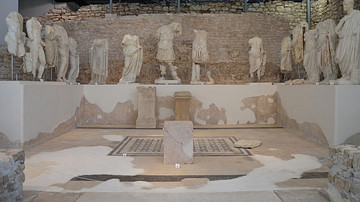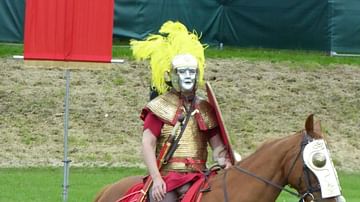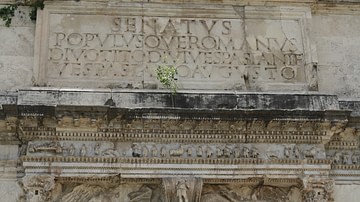Search
Search Results

Article
The Batavian Revolt
Batavian revolt was a rebellion of the Batavians against the Romans in 69-70 CE. After initial successes by their commander Julius Civilis, the Batavians were ultimately defeated by the Roman general Quintus Petillius Cerialis. The year...

Definition
Roman Imperial Cult
The Roman imperial cult was the practice of venerating Roman emperors and their families as having divine attributes, honoring their contributions to the spread of Roman religion and culture. It was instituted by the first Roman emperor Augustus...

Definition
Roman Cavalry
Cavalry, although never replacing infantry as the mainstay of the Roman army, could provide useful cover on the flanks of armies, could be used as a shock tactic to cause disruption to enemy infantry formations, and could pursue an enemy...

Article
Roman Warfare in the Age of Pyrrhus
The Roman army fought many conflicts throughout its long history, though perhaps none so indelible as the Pyrrhic War from 280 to 275 BCE. This war between Rome and a league of Greek colonies in southern Italy led by the city of Tarentum...

Definition
Roman Auxiliary Cavalry
The Roman army consisted of three separate divisions: the famed legions, the cavalry, and lastly, the auxiliaries. The auxiliaries (auxilia) were comprised of infantry cohorts, mounted infantry, and cavalry units or wings (alae). Although...

Article
The Roman Empire in West Africa
At its fullest extent, the Roman Empire stretched from around modern-day Aswan, Egypt at its southernmost point to Great Britain in the north but the influence of the Roman Empire went far beyond even the borders of its provinces as a result...

Definition
Roman Constitution
Roman constitution was an accumulation of laws, legal decisions, and ancient customs. While today 'constitution' usually refers to a single act of legislation, this was not the case in ancient Rome. Instead, Roman government relied on the...

Article
Caesarea Maritima's Role in the Roman Empire
Caesarea Maritima, the city Herod the Great (r. 37-4 BCE) built for Rome on the southeastern coast of the Mediterranean served as the Roman Empire's powerbase of operations both commercially and militarily. With Rome's ultimate goal of adding...

Article
Roman Citizenship
Citizenship is and always has been a valued possession of any individual. When one studies the majority of ancient empires one finds that the concept of citizenship, in any form, was non-existent. The people in these societies did not and...

Definition
Roman Standard
The Roman Standard (Latin: Signum or Signa Romanum) was a pennant, flag, or banner, suspended or attached to a staff or pole, which identified a Roman legion (infantry) or Equites (cavalry). The Standard of a cavalry unit was emblazoned with...